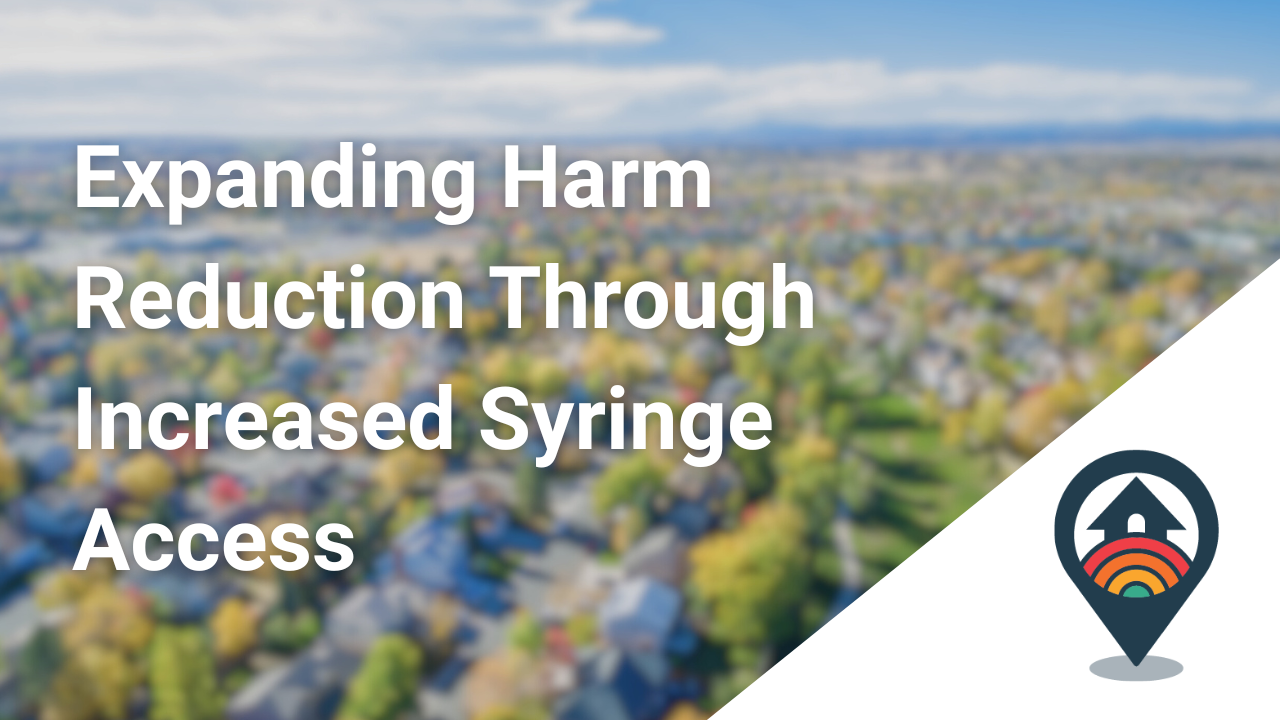Webinar Overview
On February 28, 2024, the Homeless and Housing Resource Center (HHRC) hosted the “Expanding Harm Reduction Through Increased Syringe Access” webinar. The webinar explored how health centers and community-based organizations can broaden harm reduction services by offering enhanced syringe access. The webinar featured insights from the Cherokee Nation Harm Reduction Program in Oklahoma and the Migrant Health Center in Puerto Rico. Their work exemplifies the varied and creative strategies that can be employed to support communities affected by addiction and homelessness.
Overview of Syringe Access Programs
Syringe Access Programs (SAPs), also known as Syringe Service Programs (SSPs), are evidence-based public health interventions that play a pivotal role in reducing risks for individuals who use drugs intravenously by providing clean syringes and allowing individuals to dispose of used syringes. Notably, SSPs have been proven not to increase drug use within communities, debunking common misconceptions surrounding their operation.
Core Services and Innovative Ideas
SSPs provide several core services, including access to new syringes, safer-use kits, naloxone, disposal services, education, and referrals to treatment. Beyond these, many programs offer additional services, such as infectious disease testing, medication-assisted treatment, and wound care, directly or through partnerships with other community programs. These programs are essential for accessing treatment, primary care, care coordination, housing support, and educational services.
Cherokee Nation Harm Reduction Program, Oklahoma
The Cherokee Nation Harm Reduction Program in Oklahoma is a new initiative designed to address a rise in overdose deaths within the Cherokee Nation Reservation. It employs culturally appropriate strategies to promote safety, health, and well-being among its participants. By offering syringe exchange services and referrals to co-located counseling and medical care, the program reduces harm, strengthens community ties, and supports recovery. Importantly, it operates on principles of trust and confidentiality, ensuring that participants receive compassionate care without judgment. This is crucial for fostering a sense of community.
Migrant Health Center Inc., Puerto Rico
Migrant Health Center Inc. in Puerto Rico provides essential harm reduction services tailored to meet the unique needs of the island’s population. This program excels in outreach and education, reaching participants across both urban and rural parts of the island through mobile operations and “social networking” among peers. Since opening in 1971, Migrant Health Center Inc. has expanded its services as it has identified emerging needs, incorporating substance use treatment, PrEP, hormonal therapy, and free dental and primary care to those experiencing homelessness. By integrating syringe access programs with broader health initiatives, the center addresses its clientele’s multifaceted needs and prevents service delivery fragmentation. Its work underscores the importance of holistic, culturally, and linguistically appropriate services.
Key Takeaways
Empowering Through Education: The webinar emphasized the significance of education within organizations in fostering a comprehensive understanding and implementation of harm reduction practices. By ensuring all staff members are knowledgeable about these practices, such as the administration of naloxone, the benefits of syringe access programs, and the philosophy of harm reduction, organizations can promote a more inclusive and effective service delivery model.
The Importance of Community Engagement: Attendees were reminded of the critical role of community engagement and partnership building in advancing harm reduction efforts. By collaborating with established partners and individuals who have utilized services, centers can identify and address the unique needs within their communities, enhancing the overall impact of their services.
Program Diversification and Integration: The webinar highlighted services offered by SSPs, including access to clean syringes, naloxone distribution, infectious disease testing, and referrals to treatment. Integrating these services can significantly improve health outcomes for individuals utilizing the programs.
Navigating Challenges and Innovations: Presenters discussed various challenges and innovations within harm reduction programs, including sustainable funding, operational models, and community outreach strategies. The discussion included the novel approach of using vending machines to distribute harm reduction kits, which has shown promise in addressing accessibility issues.
Conclusion
The “Expanding Harm Reduction Through Increased Syringe Access” webinar offered an overview of the essential role of syringe access and harm reduction services in supporting community health and well-being. The insights shared by panelists underscored the necessity of adopting person-centered, inclusive approaches to public health interventions.
We encourage health professionals, community leaders, and all interested individuals to watch the full webinar to gain a deeper understanding of the impactful strategies and real-life experiences discussed during the session.
This blog post was developed with the assistance of generative artificial intelligence and was revised and edited by humans.


